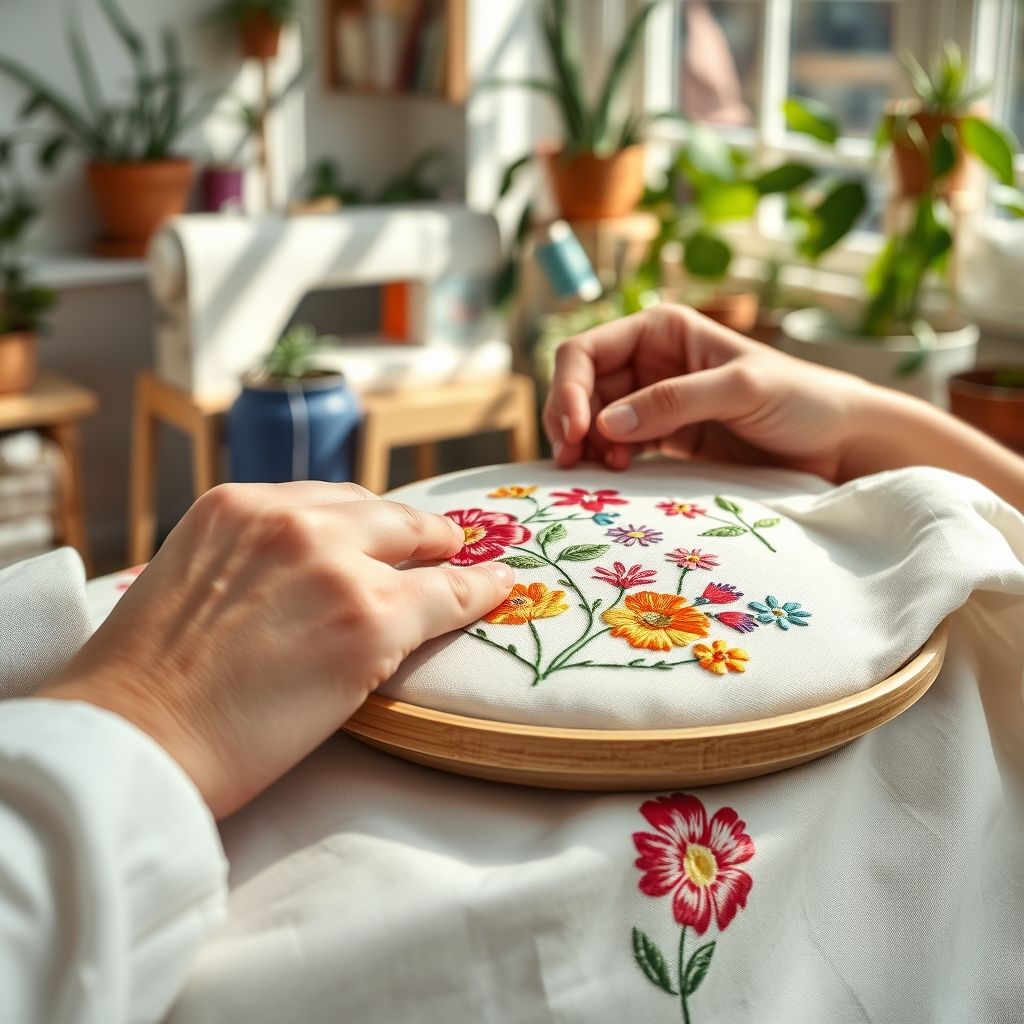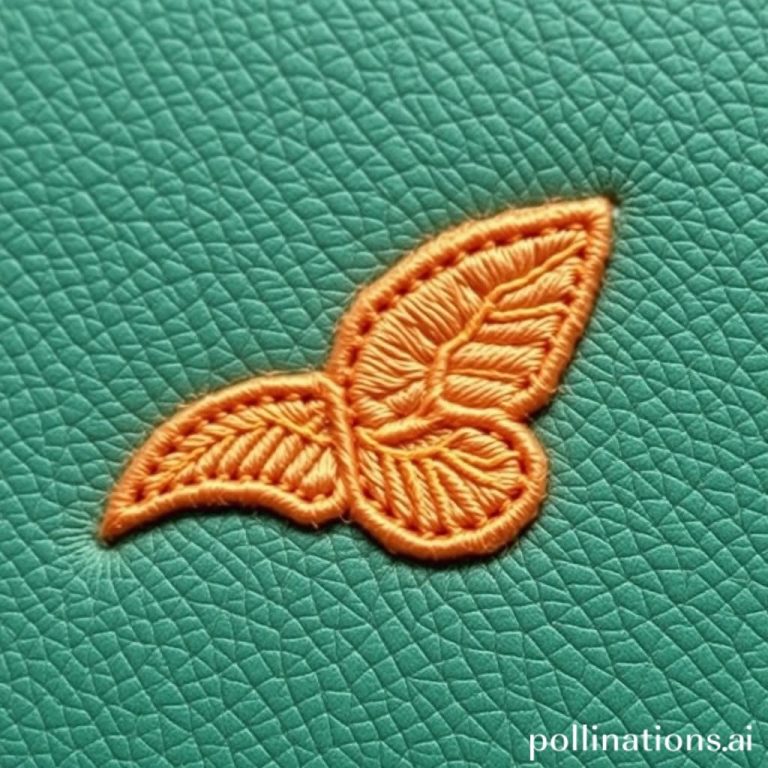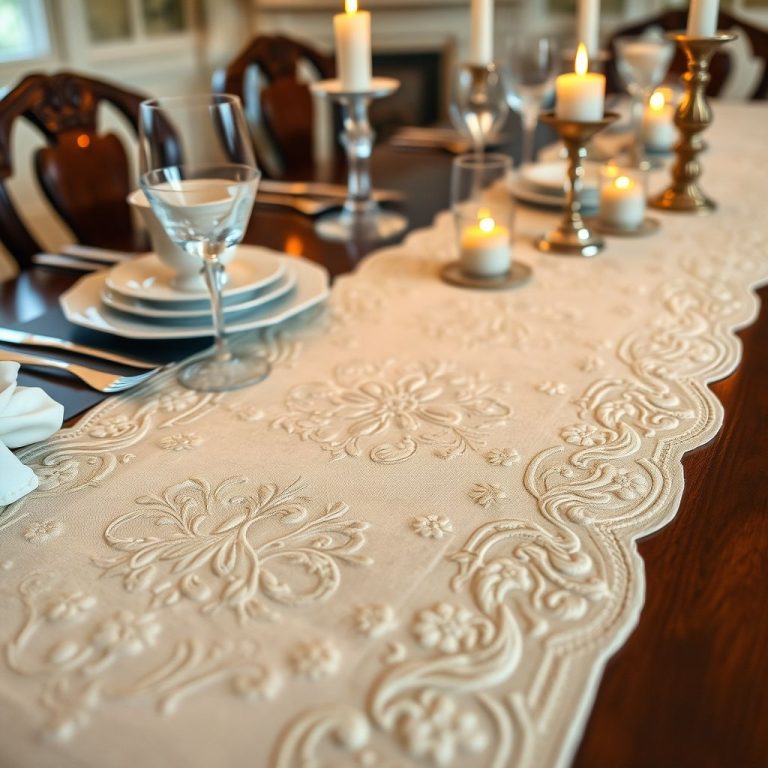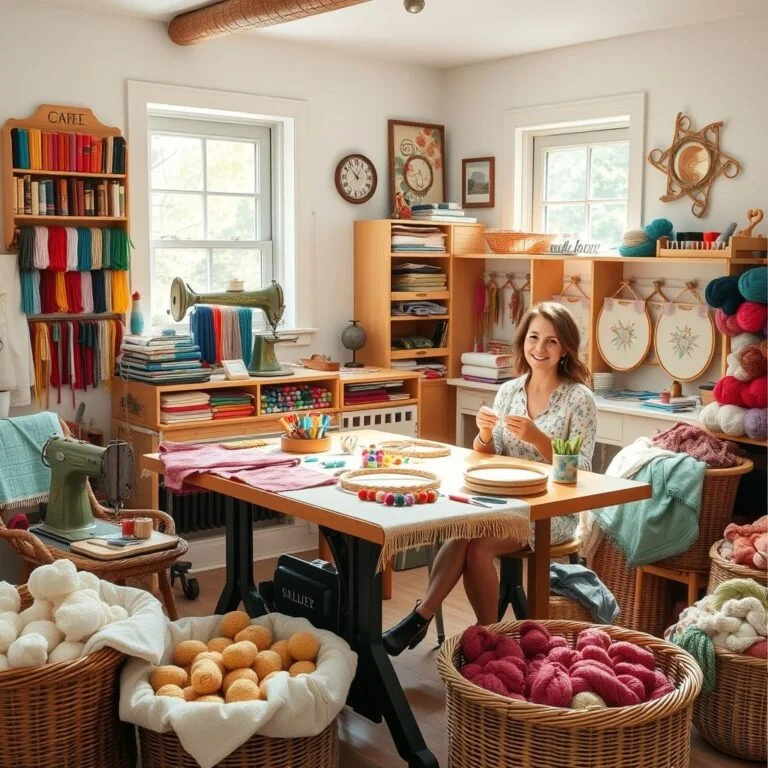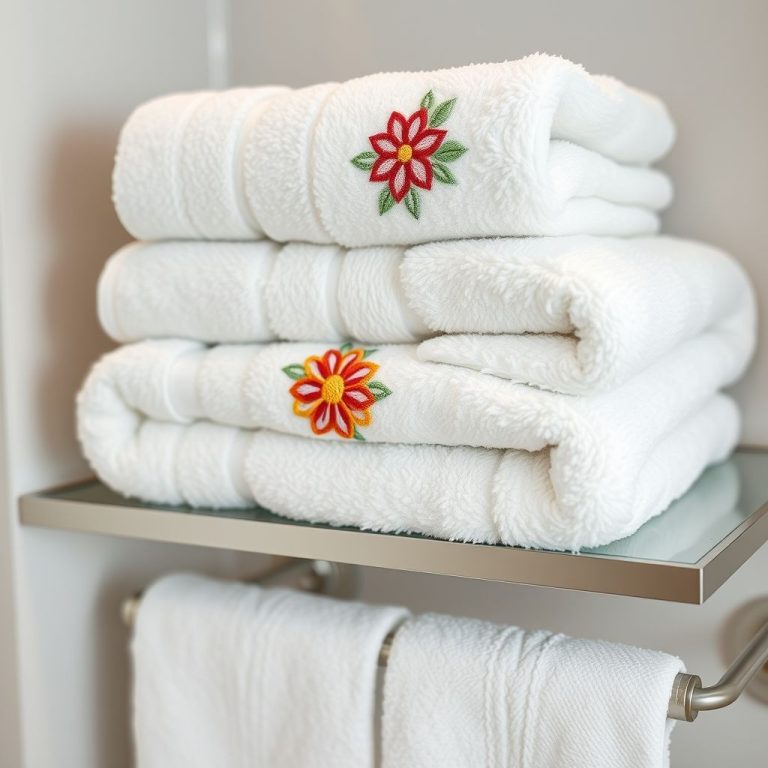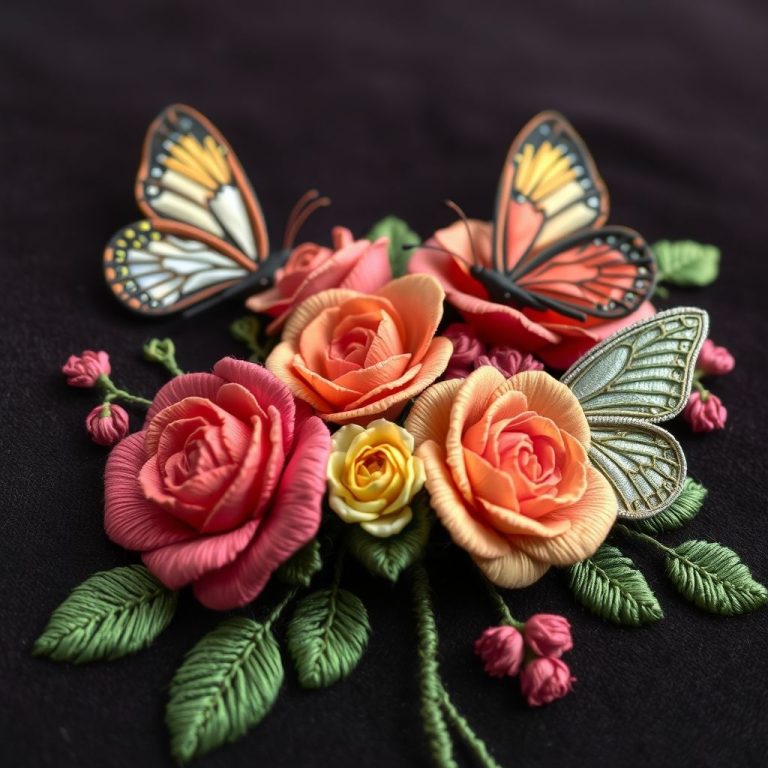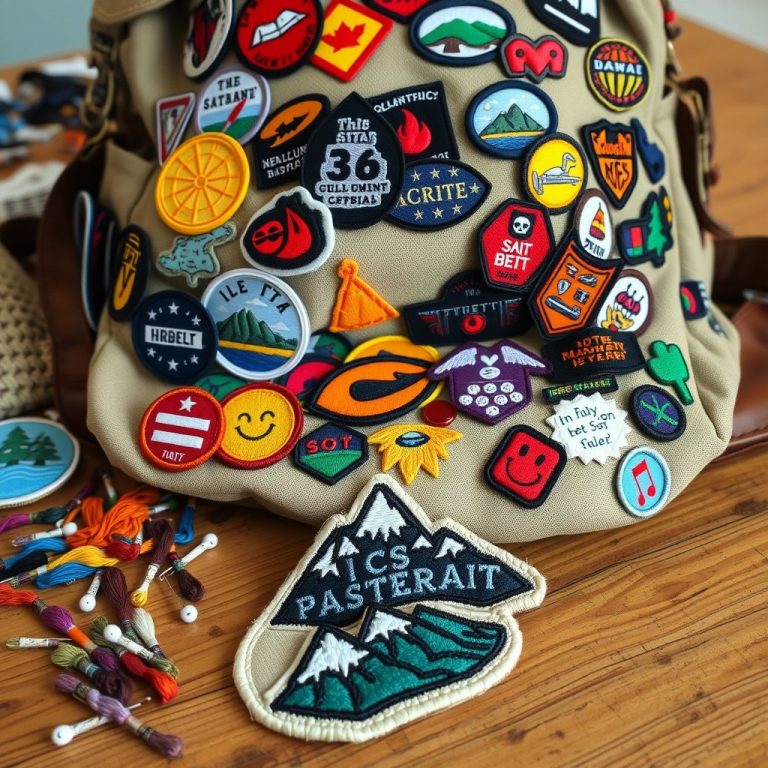Sustainable Stitches The Top Organic Embroidery Threads of 2025
In a world increasingly focused on sustainability and ethical practices, the crafting community is also embracing eco-friendly options. Embroidery, a timeless art form, is no exception. As we look ahead to 2025, the demand for organic embroidery threads is set to soar, driven by a desire to minimize our environmental impact and create beautiful, lasting pieces with a conscience. This isn’t just a trend; it’s a conscious shift towards responsible consumption and a deeper appreciation for the materials we use. But with so many options emerging, how do you choose the best organic embroidery threads for your projects? This blog post dives deep into the world of sustainable stitching, highlighting the top five organic embroidery threads anticipated to lead the market in 2025. We’ll explore their unique qualities, benefits, and ideal applications, empowering you to make informed choices and contribute to a more sustainable crafting future. We’ll also consider the importance of thread quality and its impact on the final result, as well as the broader implications of choosing organic materials.
What Makes Embroidery Thread “Organic”?
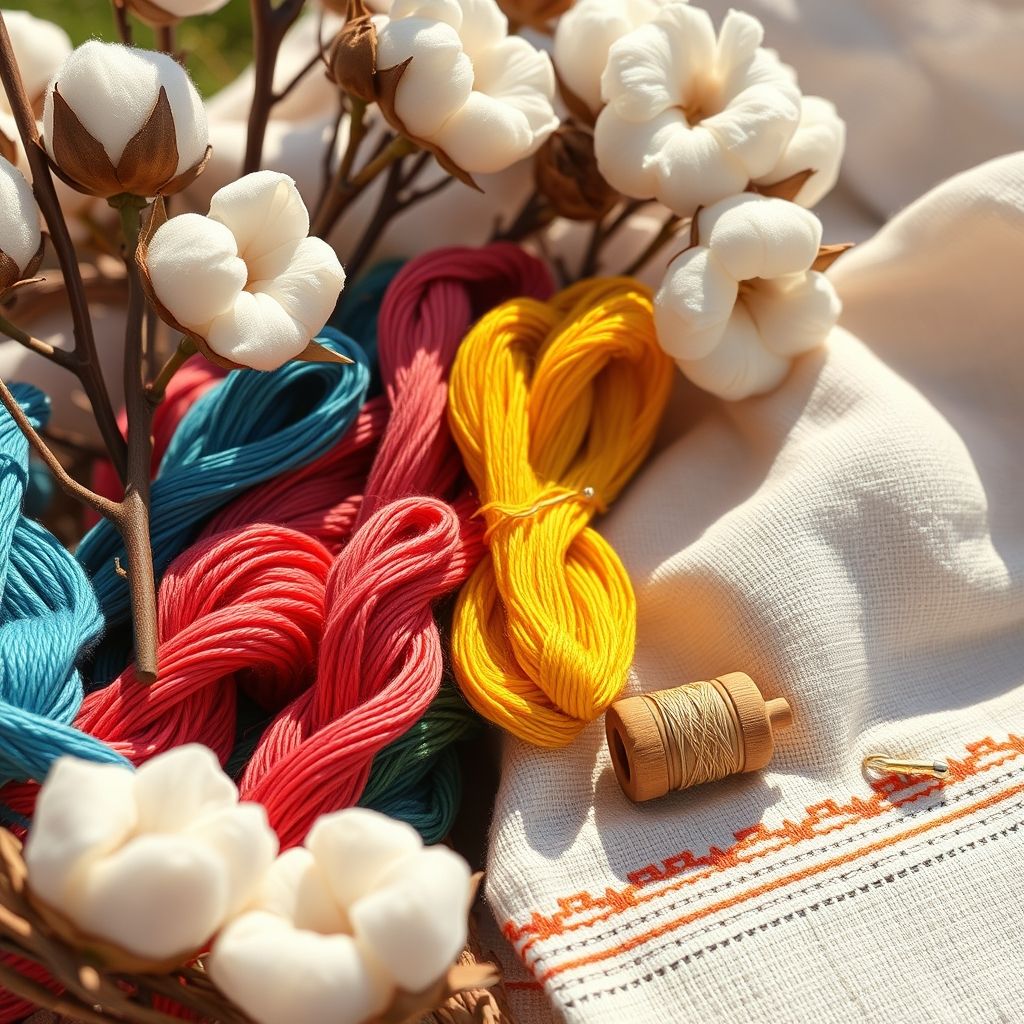
The term “organic” in embroidery thread refers to fibers grown and processed according to strict environmental standards. This typically means the cotton, silk, or wool used in the thread is cultivated without synthetic pesticides, herbicides, or fertilizers. Furthermore, the dyeing and finishing processes must adhere to eco-friendly practices, avoiding harsh chemicals and minimizing water and energy consumption. Certifications like GOTS (Global Organic Textile Standard) are crucial for verifying a thread’s organic status, ensuring that it meets rigorous criteria throughout the entire supply chain.
The benefits of using organic embroidery threads extend far beyond personal satisfaction. Conventional cotton farming, for example, is notoriously water-intensive and relies heavily on pesticides, which can harm ecosystems and human health. By choosing organic alternatives, we support farming practices that prioritize biodiversity, soil health, and the well-being of farmers and their communities. As explained by the Organic Trade Association, “Organic production systems are based on principles that maintain and replenish soil fertility, reduce the use of toxic and persistent pesticides and fertilizers, and build biologically diverse agriculture.”
But the advantages aren’t just environmental. Organic threads often boast superior quality and durability. The gentler processing methods preserve the natural fibers, resulting in a softer, stronger thread that is less likely to fray or break during stitching. This not only enhances the finished product but also reduces waste, as fewer threads are discarded. The environmental impact is something to consider; luckily, it’s easy to find quality threads that are also eco-friendly! These are the threads you want to look for:
CABODYALS 12 Skeins 105 Yards Embroidery Floss Cross Stitch Threads 6 Ply Variegated Macaroon Friendship Bracelet String Floss Threads Bulk for Jewelry Making Bracelet Knitting Stitching Craft Supply
$5.59 (as of June 1, 2025 07:57 GMT -04:00 - More infoProduct prices and availability are accurate as of the date/time indicated and are subject to change. Any price and availability information displayed on [relevant Amazon Site(s), as applicable] at the time of purchase will apply to the purchase of this product.)Friendship Bracelet String 12 Skeins, Embroidery Floss Cross Stitch Embroidery Thread Floss Bracelet Making Yarn, Craft Floss (Green Series)
$3.99 (as of June 1, 2025 05:56 GMT -04:00 - More infoProduct prices and availability are accurate as of the date/time indicated and are subject to change. Any price and availability information displayed on [relevant Amazon Site(s), as applicable] at the time of purchase will apply to the purchase of this product.)10 Skeins Black Embroidery Floss, 8m Cotton Embroidery Floss - Cross Stitch Thread Set
$3.79 (as of June 1, 2025 07:57 GMT -04:00 - More infoProduct prices and availability are accurate as of the date/time indicated and are subject to change. Any price and availability information displayed on [relevant Amazon Site(s), as applicable] at the time of purchase will apply to the purchase of this product.)100% Frosted Matt Embroidery Machine Thread 72 Spools 40WT Each Spool 500M (550Y) for Brother Babylock Janome Singer Pfaff Husqvarna Bernina Embroidery and Sewing Machines-Made by New brothread
$52.99 (as of May 31, 2025 05:25 GMT -04:00 - More infoProduct prices and availability are accurate as of the date/time indicated and are subject to change. Any price and availability information displayed on [relevant Amazon Site(s), as applicable] at the time of purchase will apply to the purchase of this product.)Ftyiwu Waxed Thread 32 Yards, Leather Sewing Waxed Thread with Hand Sewing Needles for Home Upholstery Carpet Leather Canvas Repair and Sewing (Black)
$4.99 (as of June 1, 2025 05:56 GMT -04:00 - More infoProduct prices and availability are accurate as of the date/time indicated and are subject to change. Any price and availability information displayed on [relevant Amazon Site(s), as applicable] at the time of purchase will apply to the purchase of this product.)Top Pick #1: Organic Egyptian Cotton Embroidery Thread
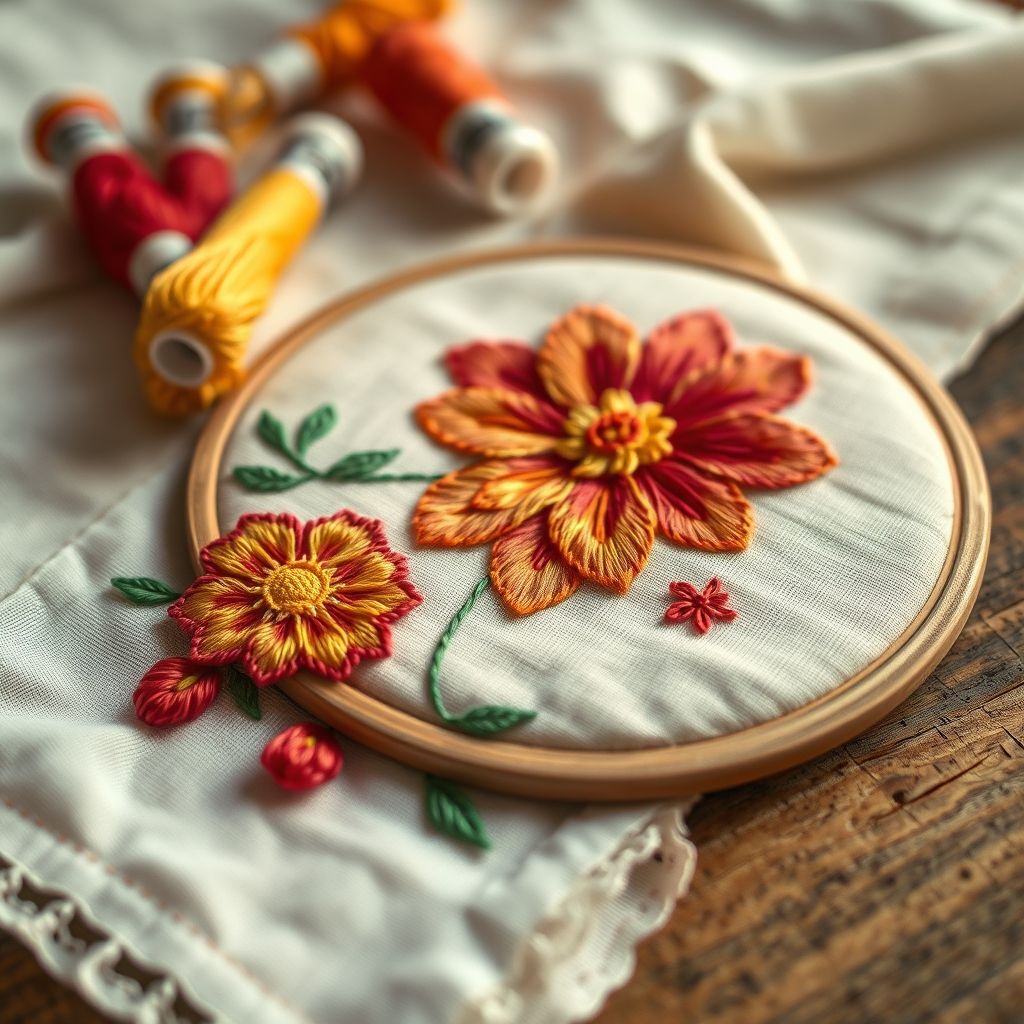
Egyptian cotton is renowned for its exceptional length, strength, and softness, making it a premium choice for embroidery. When grown and processed organically, it elevates the quality even further. Organic Egyptian cotton embroidery thread offers a luxurious feel and a beautiful sheen, perfect for adding a touch of elegance to your projects. The long fibers minimize breakage and lint, resulting in cleaner, more defined stitches. This thread is particularly well-suited for delicate designs, intricate details, and heirloom-quality pieces.
One of the key benefits of organic Egyptian cotton is its superior absorbency, which allows for even dye penetration and vibrant, lasting colors. This is essential for creating embroidered designs that stand the test of time. Unlike conventionally grown cotton, organic Egyptian cotton is cultivated using sustainable irrigation practices, minimizing water waste and protecting local ecosystems. As noted in a report by the Sustainable Apparel Coalition, “Organic cotton farming can reduce water consumption by up to 91% compared to conventional cotton farming.”
Consider using organic Egyptian cotton embroidery thread for projects like monograms, fine art embroidery, and embellishing garments with intricate details. Its smooth texture and rich colors will enhance the overall aesthetic and create a truly exceptional finish. We have previously analyzed many brands, and knowing about these can help improve the quality of your embroidery:
Top 10 Embroidery Threads 2020
Top Pick #2: Organic Peace Silk Embroidery Thread
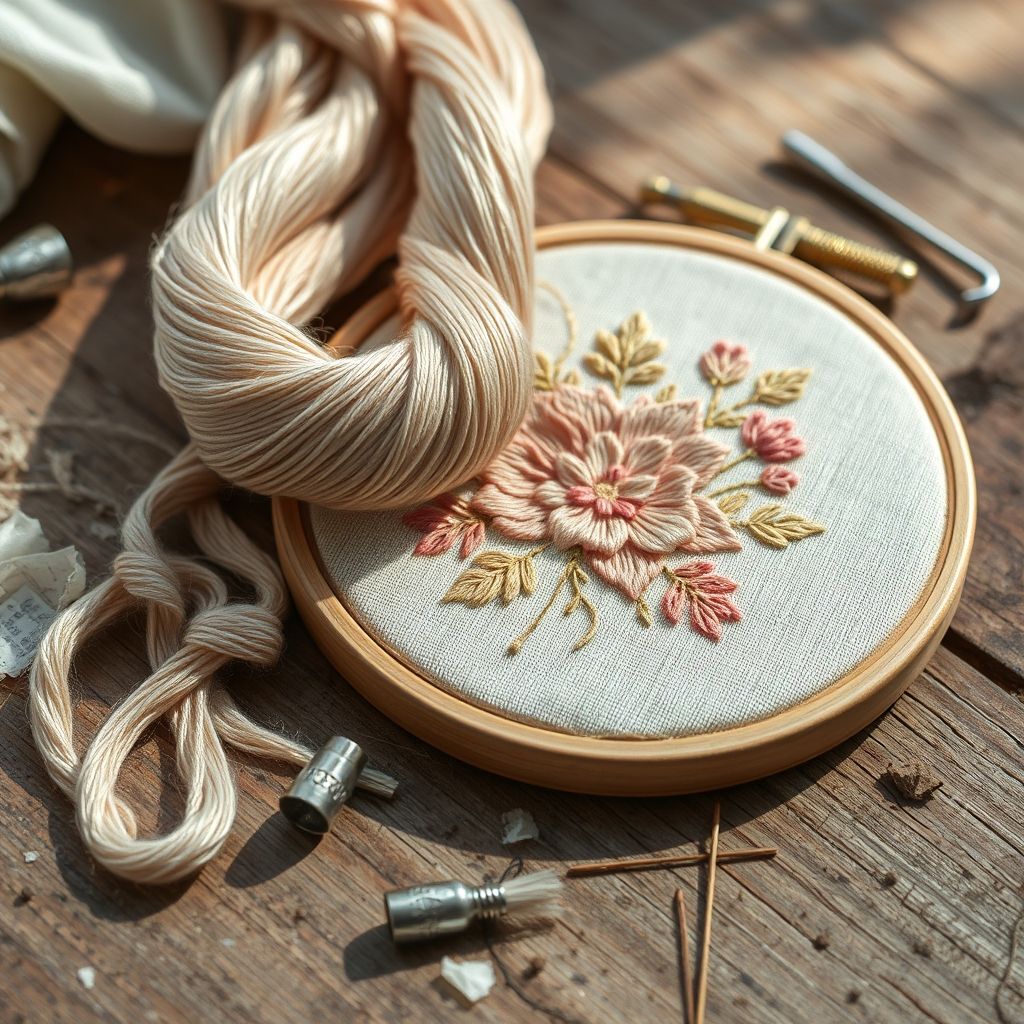
Peace silk, also known as Ahimsa silk, is produced in a way that allows the silkworm to complete its natural life cycle. This ethical and sustainable alternative to traditional silk eliminates the need to boil the silkworms alive, making it a cruelty-free option for conscious crafters. Organic peace silk embroidery thread offers a unique texture and subtle sheen, perfect for adding depth and dimension to your projects. The fibers are incredibly strong and resilient, resulting in durable and long-lasting embroidery.
Organic peace silk is often dyed using natural plant-based dyes, further minimizing its environmental impact. The natural dyes create unique and subtle color variations, adding a touch of organic beauty to your designs. This thread is particularly well-suited for projects that require a soft drape and a flowing aesthetic, such as scarves, shawls, and delicate embroidery on clothing. “Peace silk embodies a more ethical and compassionate approach to silk production, aligning with the values of sustainable fashion,” according to the World Fair Trade Organization.
When working with organic peace silk embroidery thread, consider using a slightly larger needle to accommodate the thicker fibers. Experiment with different stitching techniques to highlight the thread’s unique texture and create stunning visual effects. This type of thread is perfect for adding a touch of luxury and ethical consciousness to your embroidery projects.
Top Pick #3: Organic Merino Wool Embroidery Thread
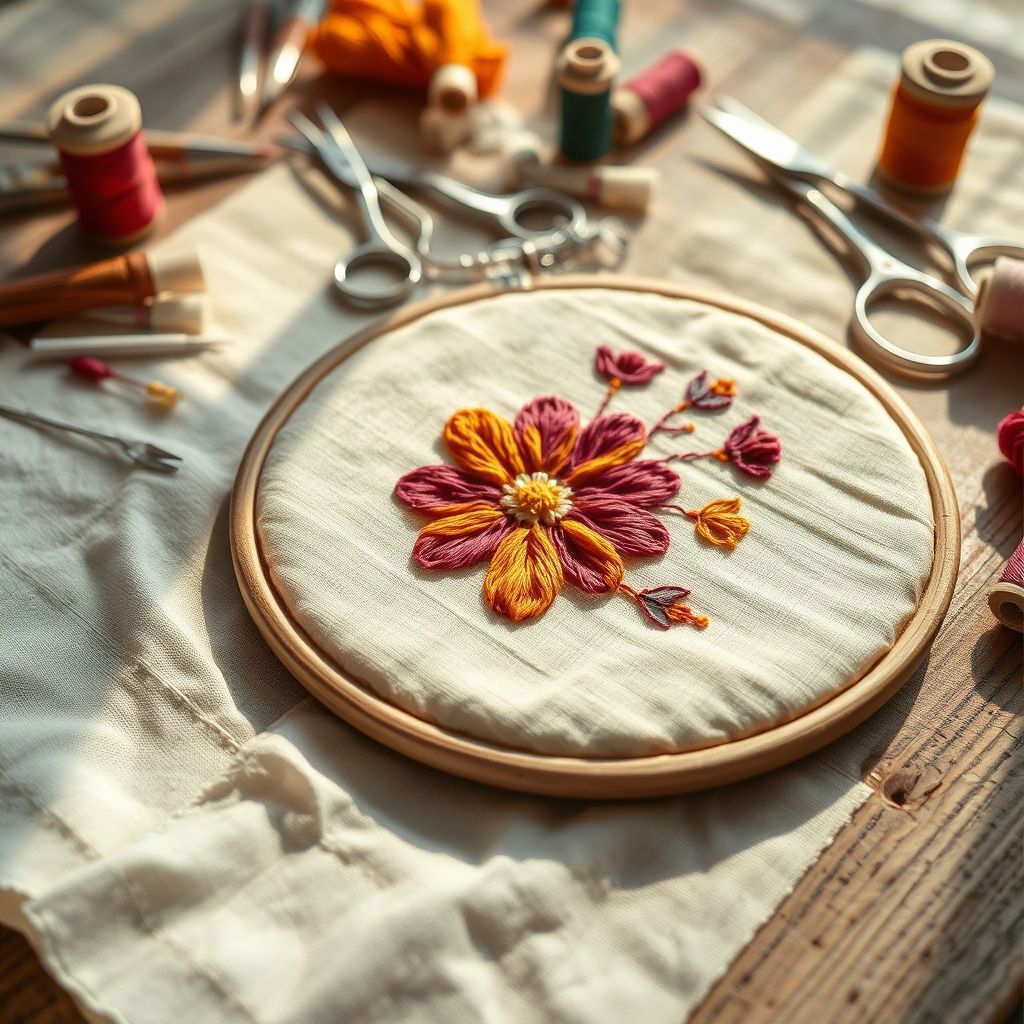
Merino wool is prized for its exceptional softness, warmth, and natural crimp, making it an ideal choice for a variety of textile applications, including embroidery. Organic merino wool embroidery thread is sourced from sheep raised on certified organic farms, where they are treated humanely and graze on pastures free from pesticides and synthetic fertilizers. This ensures that the wool is not only of the highest quality but also produced in a sustainable and ethical manner.
Organic merino wool embroidery thread offers a unique texture and a rustic charm, perfect for adding a touch of warmth and character to your projects. The natural crimp of the fibers creates a lofty and voluminous stitch, adding dimension and visual interest. This thread is particularly well-suited for projects that require texture and depth, such as needlepoint, crewel embroidery, and embellishing knitwear. A study published in the Journal of Animal Science found that “Organic sheep farming practices can improve animal welfare and reduce environmental impact compared to conventional sheep farming.”
Consider using organic merino wool embroidery thread for projects like cushions, blankets, and wall hangings. Its natural warmth and texture will create a cozy and inviting feel. Be sure to gently hand wash your embroidered items to preserve the wool’s natural softness and prevent shrinkage. Simthread also offers a great selection:
simthread 63 brother colors embroidery thread
Top Pick #4: Organic Linen Embroidery Thread
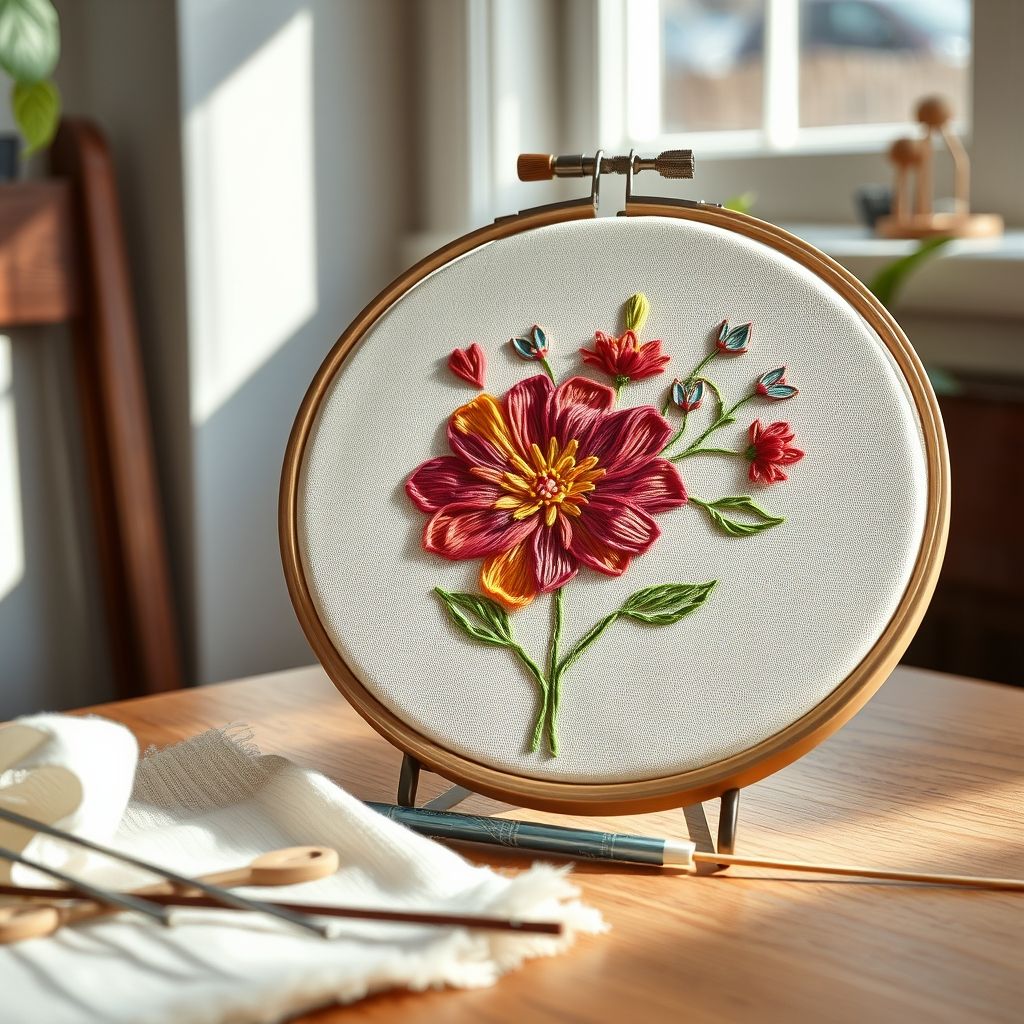
Linen, derived from the flax plant, is a durable and versatile natural fiber that has been used for centuries. Organic linen embroidery thread is grown without the use of synthetic pesticides or fertilizers, making it a sustainable and eco-friendly choice. Linen is known for its strength and durability, which makes it ideal for projects that will be used and washed frequently.
Organic linen embroidery thread has a slightly textured look and feel. This adds a touch of rustic charm to your projects. Linen is also very absorbent, which helps the dye take well and gives the thread vibrant and lasting color. Plus, it’s known for getting softer and more comfortable with each wash. According to the European Confederation of Linen and Hemp, “Linen production requires significantly less water and pesticides compared to cotton production, making it a more sustainable choice.”
This thread is especially well-suited for projects that need to be durable and long-lasting, like home decor items such as tablecloths, napkins, and decorative pillows. It is also great for embroidery on clothing items like shirts, dresses, and bags. Be sure to pre-wash your fabric before embroidering to prevent shrinkage.
Top Pick #5: Recycled Cotton Embroidery Thread
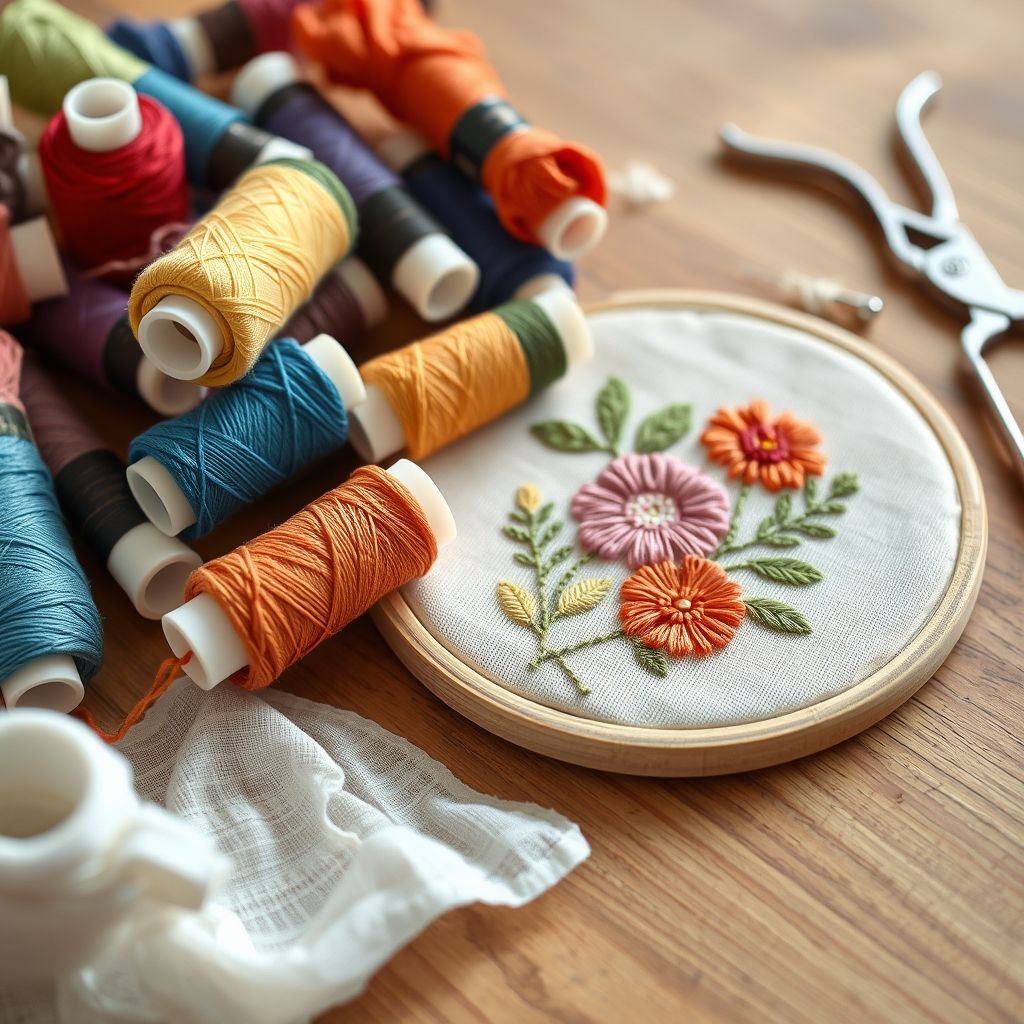
In a world grappling with textile waste, recycled cotton embroidery thread offers a creative solution. This thread is made from pre- or post-consumer cotton scraps, diverting them from landfills and giving them a new lease on life. Recycled cotton embroidery thread is a great choice if you’re looking for an eco-friendly way to craft. By using recycled cotton, you can reduce the need for new cotton production, which requires a lot of water and energy.
Recycled cotton embroidery thread can vary in texture and color depending on the source materials, but it generally has a soft and slightly textured feel. It’s suitable for a wide range of embroidery projects, from decorative stitching to mending and embellishing garments. The Council for Textile Recycling notes that “Recycling textiles can reduce landfill waste and conserve natural resources.”
This thread is particularly well-suited for eco-conscious crafters who are passionate about reducing their environmental footprint. Consider using it for projects like upcycled clothing, patchwork quilts, and reusable shopping bags. It is also a great thread to use when trying to learn how to embroider!
Looking Ahead: The Future of Organic Embroidery
As consumer awareness of sustainability continues to grow, the demand for organic embroidery threads is expected to surge in the coming years. Innovations in textile technology are also driving the development of new and improved organic fibers, expanding the possibilities for eco-friendly embroidery. We can anticipate seeing a wider range of colors, textures, and thicknesses in organic embroidery threads, catering to a diverse range of crafting styles and applications.
Moreover, increased transparency in the supply chain will empower consumers to make informed choices and support brands that prioritize ethical and sustainable practices. Certifications like GOTS and Fair Trade will play a crucial role in verifying the authenticity of organic claims and ensuring that workers are treated fairly. The future of embroidery is undoubtedly intertwined with the principles of sustainability, and by embracing organic threads, we can contribute to a more environmentally responsible and socially conscious crafting community.
In conclusion, the shift towards organic embroidery threads is more than just a trend; it’s a reflection of a growing commitment to sustainability and ethical practices within the crafting world. By choosing organic alternatives, we can minimize our environmental impact, support responsible farming practices, and create beautiful, lasting pieces with a clear conscience. The top five organic embroidery threads highlighted in this post – organic Egyptian cotton, organic peace silk, organic merino wool, organic linen, and recycled cotton – offer a diverse range of options for every project and budget.
As we look ahead to 2025, let’s embrace the opportunity to make conscious choices and champion the use of organic materials in our embroidery projects. By doing so, we can contribute to a more sustainable and ethical crafting future for generations to come. Choosing sustainable threads like these can allow you to create more amazing embroidery projects!
